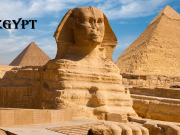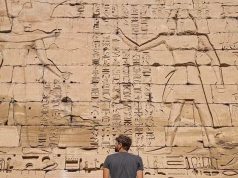Welcome to our blog, where we explore the topic of freedom of religion and its significance in fostering a diverse and inclusive society. Join us as we delve into the concept of religious freedom, examine its historical and legal foundations, discuss its importance for individuals and communities, and explore the challenges and opportunities in upholding this fundamental human right.
Understanding Freedom of Religion:
1.1 Definition and Scope:
Defining freedom of religion as a fundamental human right that encompasses the freedom to have or adopt a religion or belief of one’s choice.
Exploring the scope of religious freedom, including the freedom to practice, manifest, and express one’s religion individually and in community with others.
1.2 Historical and Legal Foundations:
Tracing the historical development of religious freedom, from ancient civilizations to modern legal frameworks.
Discussing key international and national legal instruments that protect religious freedom, such as the Universal Declaration of Human Rights and the First Amendment of the United States Constitution.
1.3 Interfaith Dialogue and Understanding:
Highlighting the importance of interfaith dialogue and understanding in promoting religious freedom.
Discussing the benefits of fostering mutual respect, tolerance, and cooperation among diverse religious communities.
Importance of Religious Freedom:
2.1 Individual Autonomy and Identity:
Exploring how religious freedom allows individuals to exercise autonomy in matters of faith, spirituality, and personal beliefs.
Discussing the role of religion in shaping personal identity and providing a sense of belonging and purpose.
2.2 Pluralism and Social Cohesion:
Examining how religious freedom contributes to pluralism, diversity, and social cohesion within societies.
Discussing the benefits of embracing diverse religious traditions and fostering dialogue and cooperation among different religious communities.
2.3 Peaceful Coexistence and Conflict Resolution:
Addressing the role of religious freedom in promoting peaceful coexistence and resolving religious conflicts.
Discussing examples of successful interreligious dialogue and cooperation in conflict zones.
Challenges and Controversies:
3.1 Religious Intolerance and Discrimination:
Addressing the challenges posed by religious intolerance, discrimination, and hostility towards minority religious groups.
Discussing the importance of combating stereotypes, prejudice, and hate speech.
3.2 Balancing Religious Freedom and Other Rights:
Exploring the complexities of balancing religious freedom with other human rights, such as freedom of expression, equality, and non-discrimination.
Discussing the limits and restrictions on religious practices in certain circumstances, such as public safety or protection of other rights.
3.3 State-Sponsored Religion and Religious Extremism:
Examining the challenges posed by state-sponsored religion and the impact on religious freedom.
Discussing the threats posed by religious extremism and the need to address radicalization while safeguarding religious freedom.
Promoting and Protecting Religious Freedom:
4.1 Legislative and Policy Frameworks:
Exploring the role of legislation and policies in protecting and promoting religious freedom.
Discussing the importance of comprehensive legal frameworks that ensure equal rights and protections for individuals of all religious backgrounds.
4.2 Education and Awareness:
Highlighting the role of education in promoting religious literacy, understanding, and tolerance.
Discussing the importance of integrating religious studies into curricula and fostering dialogue in educational institutions.
4.3 Interfaith Cooperation and Dialogue:
Emphasizing the significance of interfaith cooperation and dialogue in promoting religious freedom.
Discussing the role of religious leaders, civil society organizations, and grassroots initiatives in fostering understanding and peace.
Future Perspectives:
5.1 Emerging Issues and Challenges:
Addressing emerging issues and challenges related to religious freedom, such as the impact of technology and social media on religious expression and the rise of secularism.
5.2 Global Efforts and Partnerships:
Highlighting global efforts and partnerships aimed at protecting and promoting religious freedom.
Discussing the role of international organizations, governments, and civil society in advancing religious freedom agendas.
5.3 Building Inclusive Societies:
Advocating for the creation of inclusive societies that respect and celebrate religious diversity.
Discussing strategies for fostering dialogue, understanding, and respect among individuals of different religious and non-religious backgrounds.
Conclusion:
As we conclude our exploration of freedom of religion, we recognize its crucial role in protecting individual rights, promoting diversity, and fostering peaceful coexistence. By upholding religious freedom, embracing dialogue, and combating intolerance, we can build inclusive societies that respect and celebrate the richness of religious diversity.























